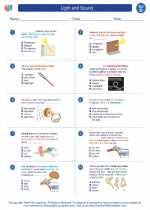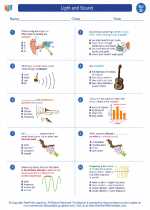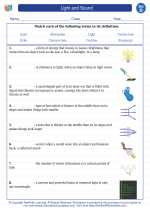Ocean
The ocean is a vast body of saltwater that covers about 71% of the Earth's surface. It plays a crucial role in regulating the planet's climate and supporting a diverse range of life forms. Studying the ocean helps us understand the complex interactions between the atmosphere, land, and marine ecosystems.
Key Concepts
- Composition: The ocean is made up of water, dissolved salts, and various gases. It also contains living organisms, sediments, and minerals.
- Zones: The ocean is divided into different zones based on depth and distance from the shore, such as the intertidal zone, neritic zone, oceanic zone, and benthic zone.
- Currents: Ocean currents are continuous, directed movements of seawater generated by forces such as the wind, the Coriolis effect, and differences in water density.
- Marine Life: The ocean is home to a wide array of plants and animals, including phytoplankton, zooplankton, fish, marine mammals, and coral reefs.
- Importance: The ocean influences weather patterns, provides food and resources, supports transportation and commerce, and contributes to the overall balance of the Earth's ecosystems.
Study Guide
Here are some key questions to consider when studying the ocean:
- What are the major components of seawater?
- How are ocean zones classified, and what distinguishes one zone from another?
- What factors influence the formation and movement of ocean currents?
- What are some examples of the diverse marine life found in different ocean habitats?
- Why is the ocean important for the planet and human societies?
Additionally, it's important to explore the impact of human activities on the ocean, such as pollution, overfishing, and climate change, and consider ways to protect and sustainably manage this valuable resource.
[Ocean] Related Worksheets and Study Guides:
.◂Science Worksheets and Study Guides Fourth Grade. Light and Sound
Study Guide Light and sound
Light and sound  Worksheet/Answer key
Worksheet/Answer key Light and sound
Light and sound  Worksheet/Answer key
Worksheet/Answer key Light and sound
Light and sound  Worksheet/Answer key
Worksheet/Answer key Light and sound
Light and sound  Vocabulary/Answer key
Vocabulary/Answer key Light and sound
Light and sound  Vocabulary/Answer key
Vocabulary/Answer key Light and sound
Light and sound  Vocabulary/Answer key
Vocabulary/Answer key Light and sound
Light and sound 

 Worksheet/Answer key
Worksheet/Answer key
 Worksheet/Answer key
Worksheet/Answer key
 Worksheet/Answer key
Worksheet/Answer key
 Vocabulary/Answer key
Vocabulary/Answer key
 Vocabulary/Answer key
Vocabulary/Answer key
 Vocabulary/Answer key
Vocabulary/Answer key

The resources above cover the following skills:
PHYSICAL SCIENCE (NGSS)
Waves and their Applications in Technologies for Information Transfer
Students who demonstrate understanding can:
Develop a model of waves to describe patterns in terms of amplitude and wavelength and that waves can cause objects to move.